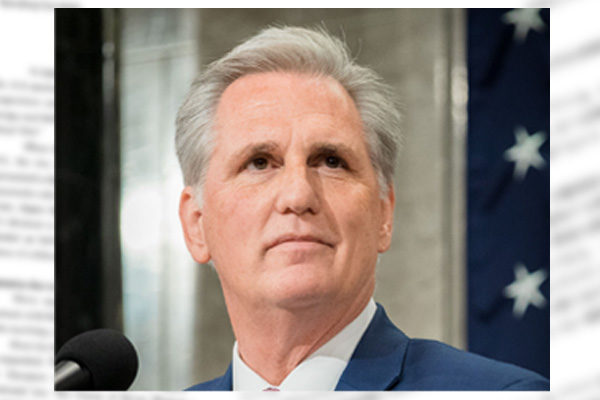The unprecedented chaos in the U.S. Congress is encouraging the dictatorships of Russia and China that dream of reviving an empire. The U.S. House of Representatives excluded aid to Ukraine from a stopgap budget and dismissed its speaker for the first time in U.S. history. The dysfunction of the U.S. Congress and the freeze on support for Ukraine are plunging not only European allies but also Japan and other Asian allies into insecurity because a concern will grow rapidly that China may miscalculate the weakness of the United States and launch an attack on Taiwan.
Lowering hurdle for China’s invasion of Taiwan
In the Indo-Pacific, the U.S. simultaneously confronts three nuclear weapon states: Russia, China, and North Korea. For Japan, a U.S. ally located at the forefront of the confrontation, the U.S. security presence is directly linked to its survival.
Russian President Vladimir Putin with an ambition to restore imperial glory annexed Ukraine’s Crimean Peninsula in 2014 unilaterally and launched a large-scale aggression against the neighbor in 2022. Chinese President Xi Jinping also has a strong sense of restoring an empire, advocating the “great revival of the Chinese nation.” He has declared that “the Chinese nation will stand tall among the nations of the world” by 2049 marking the centennial of the People’s Republic of China. The condition for this will be the annexation of Taiwan. Xi has instructed the military to complete preparations by 2027 for attacking Taiwan.
Troublingly, the two dictatorships are convinced that the U.S. has already entered a process of decline. On October 4, the Global Times under the auspices of the People’s Daily, the official organ of the Chinese Communist Party, pointed out the weaknesses of democracy, commenting that the ouster of House Speaker Kevin McCarthy demonstrated a political division in the U.S. and symbolized what American democracy is all about.
In China today, the burst of real estate bubble, the burden of excessive debt, and the high unemployment among youngsters have combined to expose the weakness of the Communist Party rule. Nonetheless, China remains the largest trading partner for more than 120 countries around the world, and its Belt and Road Initiative to expand the Chinese economic area registers more than 140 countries as participants. China remains a huge country.
However, if the U.S. as a ruling power becomes unstable, the hurdles for rising dictatorships to take risky bets will be lowered. As Putin made a series of miscalculations and suddenly decided to invade Ukraine, Xi may be dangerously close to launching an attack on Taiwan. If Ukraine loses the war without continuous support from the U.S. and Europe, China’s attack on Taiwan will become a reality.
Kishida is required to be determined
Therefore, it is the top priority for Japan, the U.S., Australia, India, the Philippines, South Korea, and other liberal democracies to enhance deterrence against China. Japan’s government of Prime Minister Fumio Kishida should persuade not only the Biden administration but also the opposition Republican Party in the U.S. that the cutoff of support for Ukraine would directly lead to a Taiwan contingency. In doing so, Japan cannot be persuasive unless it demonstrates its determination by sending the Japan Self-Defense Forces owned weapons to Ukraine.
It is true that the Kishida administration has decided to raise Japan’s defense spending to 2% of gross domestic product in five years and has achieved a policy shift to possess counterstrike capabilities. I would like to urge the Kishida administration to be determined to swiftly consolidate Japan’s defense posture through multilateral defense arrangement, the expansion of nuclear options, and the constitutional amendments to further strengthen deterrence against China.
Hiroshi Yuasa is a Planning Committee member and a senior fellow at the Japan Institute for National Fundamentals. He is also a columnist for the Sankei Shimbun newspaper.


